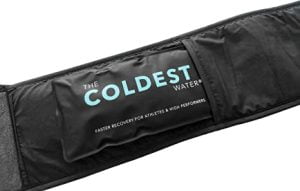How to Manage Migraine at Home?
A headache is simply defined as continuous pain in the head. Migraines are recurring throbbing headaches that usually affect one side of the head and are frequently accompanied by nausea and blurred vision.
Even if you avoid triggers and practice healthy habits, you may still experience migraine attacks. For some people, taking migraine medication can help ease the pain, but did you know you can use home remedies to help manage migraine symptoms and reduce the frequency of migraine attacks? While these home remedies will not cure your migraine, they will certainly provide some relief and more bearable until the medication kicks in.

Here are some home remedies that might help:

Dim the Lights
Migraines frequently cause increased sensitivity to light and sound. Relax in a quiet, dark room. If you can, try to sleep. The chemicals released in your brain while you sleep may help to alleviate your pain.
Hydration
Dehydration is a common contributor to headaches and is known to be a migraine trigger. Always keep water on hand, and aim to consume the recommended eight glasses each day. Although drinking extra water won’t make your migraine go away, it will help you control episodes and has a ton of other health advantages. So always remember to stay hydrated!
Take some ginger
Ginger has been found to reduce both pain and nausea. One recipe suggests mixing half a teaspoon of ground ginger into a glass of water and drinking this “ginger juice”; another suggests drinking a hot tea made with a teaspoon of freshly ground ginger.
Try temperature therapy
You can try both heat and cold therapy to see which one provides the best migraine relief. A cold compress or ice pack applied to your head or neck is thought to have a numbing effect, which may dull the sensation of pain. Using an ice pack is a cheap and relatively safe way to relieve headache discomfort and pain. Hot packs and heating pads can help to relax tense muscles. Warm showers or baths may have a similar effect. It is ultimately up to you whether you use a migraine ice pack or a migraine heat pack.
Get Some Caffeine
Many people living with migraine report that a small amount of caffeine can provide mild relief after a migraine attack. Caffeine might make you feel like you’re going through withdrawal if you suddenly drink less of it, so try to consume the same quantity every day.
Lower the temperature, and stay cool
Overheating can cause migraines, so if you’re having one or suspect one is coming on, try to keep the temperature down. Air conditioning units and fans can assist in keeping cool.
Prevent Attacks with Exercise
Exercise is not advised if you are having a migraine attack or otherwise feel sick. However, studies have shown that exercise can help to reduce migraine symptoms and episodes. Exercises with little impact, including walking and yoga, can aid to improve health. Exercise, according to some, helps stop an acute episode.
Manage stress
Stress and migraines frequently coexist. You cannot avoid daily stress, but you can manage it to help manage your migraines. Simplify your life, manage your time wisely, take a break if you’re feeling overwhelmed, and relax. In addition, yoga, meditation, progressive muscle relaxation, and learning how to relax while suffering from a headache can all help alleviate the pain.
People should seek medical attention right away if they have a sudden and severe headache, a headache accompanied by neck stiffness, a migraine that has lasted several days, or the onset of new symptoms such as vision loss, confusion, or fever. It can be difficult to deal with migraines every day. But adopting a healthy lifestyle can be beneficial. Get help from your family and friends for support.







